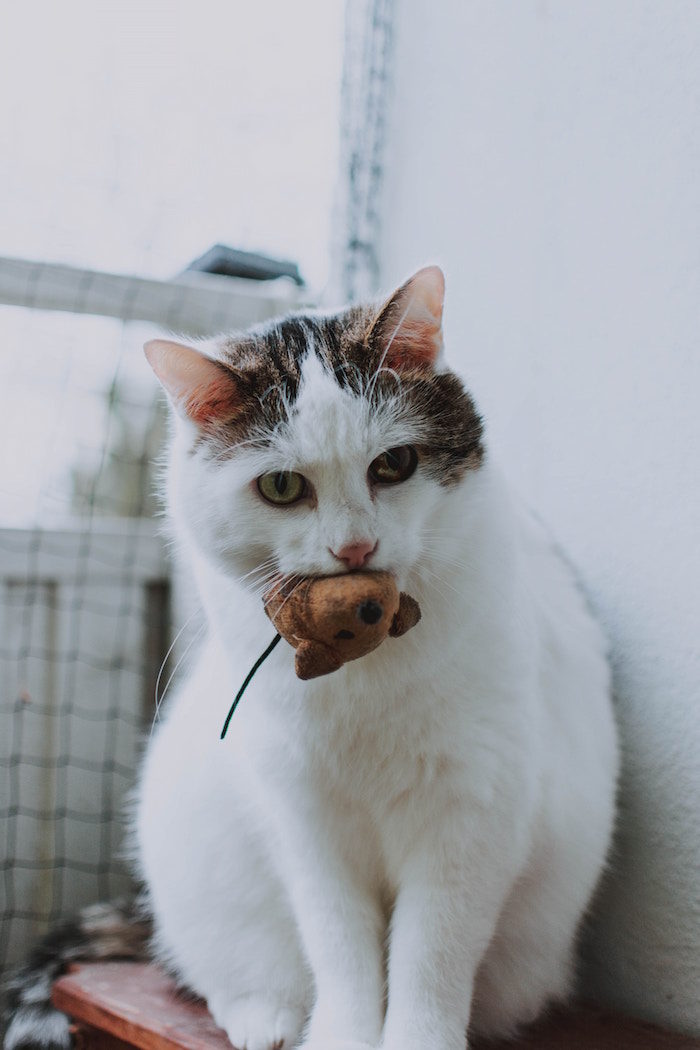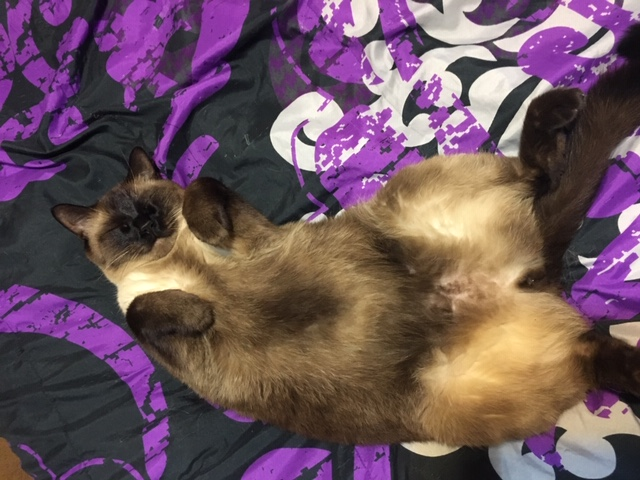 It was a Thursday, around 4:54 pm, and I was so incredibly relieved to be walking to my car, another work-week nearly over. My thoughts were consumed by getting home to my animals, the giant bowl of vegetables I would enjoy for dinner, and the glass of wine that would accompany it. The attorney I work for hollered from across the parking lot.
It was a Thursday, around 4:54 pm, and I was so incredibly relieved to be walking to my car, another work-week nearly over. My thoughts were consumed by getting home to my animals, the giant bowl of vegetables I would enjoy for dinner, and the glass of wine that would accompany it. The attorney I work for hollered from across the parking lot.
“Hey, I forgot to tell you, I saw a commercial about how there aren’t vegan dogs.”
“There are vegan dogs,” I responded. “But not vegan cats.”
“I learn something new every day,” he smiled and waved as he got into his truck and left.
What was especially interesting about this encounter was that the diet of my companion animals was something with which I had recently been morally grappling. I have a dog, Nitro, who is not a vegan dog. He is going on 10 years old and I don’t feel that changing his diet at this point in his life would be fair to him. (I know, I know.) I have two cats, Sterling and Pandora, who simply cannot thrive on a vegan diet for evolutionary reasons. Cats are strictly carnivores. To be clear, it does baffle me to love little predators while harboring so much resentment towards industries that profit from the cruelty to animals, but I cannot help it. I have always had an affinity for nonhuman animals, especially cats. So, what is a vegan gal to do?
I am a big proponent of “voting with your dollar.” I buy organic, shop second-hand and avoid plastic like the plague. Yet, I still spend my hard-earned money on animal products for my animal companions. I wondered if this made me a lesser vegan than others. (I don’t have any tangible examples of what a “vegan” truly is, by the way. I live in the Midwest and I am the only vegan that I know.)
I spent some time reflecting on the past several years of my life as a vegan and realized that “vegan” is not a static state of being. A perfect example of this can be seen in my efforts to support cruelty-free products. At first, I thought I was doing well to support Seventh Generation products. However, in 2016 Seventh Generation was acquired by Unilever, who is far from cruelty-free. My efforts then shifted from supporting simply “cruelty-free” companies to supporting companies who are “cruelty free” and also aren’t owned by a parent company who isn’t cruelty free. (Sorry not sorry, Unilever.)
 I think vegan means different things to different folks. For example, do you use conventional sugar that was filtered using bone char? Do you consume lactic acid from unknown sources? How do you feel about honey? Are you more or less of a vegan for these choices? Often, vegan behaviors and consumption patterns evolve as people grow and learn more. While it is easy to feel down about the state of the world and about all the things we could be “doing better,” why not instead focus on how empowering it is to learn and make changes accordingly? The important thing is that we, as vegans, share a common goal, which is living as compassionately, ethically and sustainably as possible.
I think vegan means different things to different folks. For example, do you use conventional sugar that was filtered using bone char? Do you consume lactic acid from unknown sources? How do you feel about honey? Are you more or less of a vegan for these choices? Often, vegan behaviors and consumption patterns evolve as people grow and learn more. While it is easy to feel down about the state of the world and about all the things we could be “doing better,” why not instead focus on how empowering it is to learn and make changes accordingly? The important thing is that we, as vegans, share a common goal, which is living as compassionately, ethically and sustainably as possible.
I do anticipate having vegan dog companions in the future, but I don’t think I can live without feline companions. With this in mind, I did some research and found that there are “certified humane” animal foods. I’m (obviously) not personally compelled by the “certified humane” justification for the use of animal products, however, the idea that these animals are being raised without crates, cages and confinement is definitely a superior alternative to conventional practices.
Here are a few brands to check out for your non-vegan furry friends.
How do you all feel about feeding your companion animals?
Related: 10 Natural Pest Prevention Tips for Your Pets
Worried About Pet Health? How To Give Your Pet A Green Lifestyle to Match Your Own
Get more like this—Sign up for our daily inspirational newsletter for exclusive content!
__
Photo: fotografierende on Unsplash; Peaceful Dumpling




